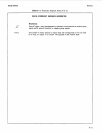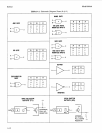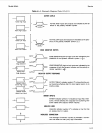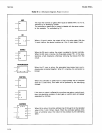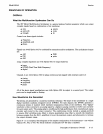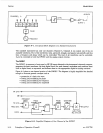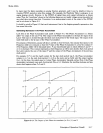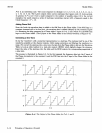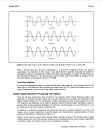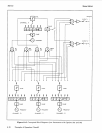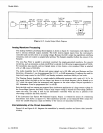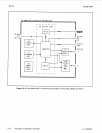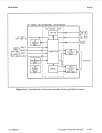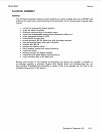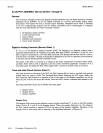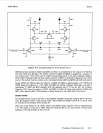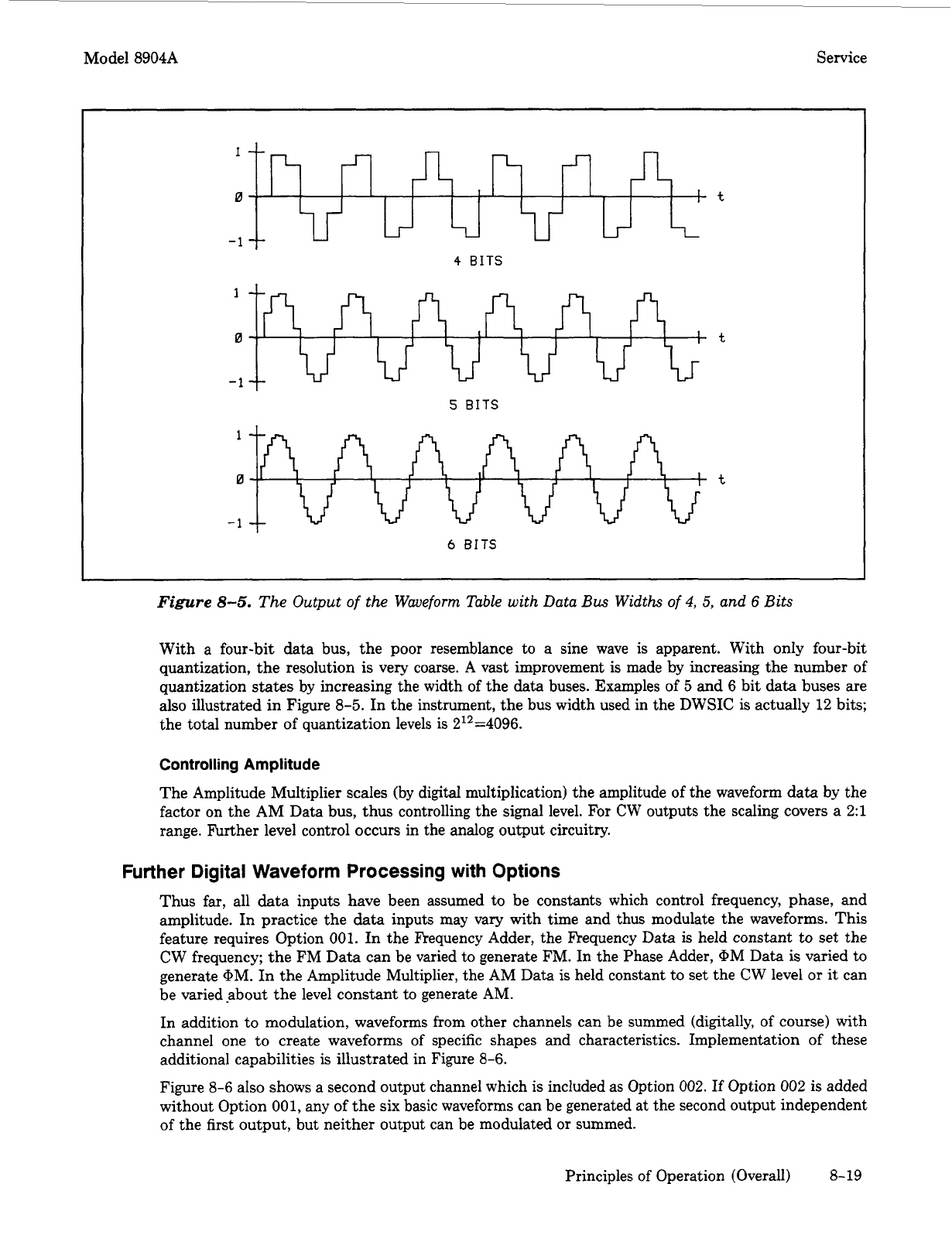
Model 8904A
Service
I
--
0
:t
-1
3-
4
BITS
5
BITS
6
BITS
~ ~
~ ~ ~~
Figure
8-5.
The Output
of
the Waveform Table with Data Bus Widths
of
4,
5,
and
6
Bits
With a four-bit data bus, the poor resemblance to a sine wave is apparent. With only four-bit
quantization, the resolution
is
very coarse.
A
vast improvement
is
made by increasing the number of
quantization states by increasing the width of the data buses. Examples of
5
and
6
bit data buses are
also illustrated in Figure
8-5.
In the instrument, the bus width used in the DWSIC is actually 12 bits;
the total number of quantization levels is 212=4096.
Controlling Amplitude
The Amplitude Multiplier scales (by digital multiplication) the amplitude of the waveform data by the
factor on the AM Data bus, thus controlling the signal level. For CW outputs the scaling covers a 2:l
range. Further level control occurs in the analog output circuitry.
Further
Digital
Waveform
Processing with Options
Thus far, all data inputs have been assumed to be constants which control frequency, phase, and
amplitude. In practice the data inputs may vary with time and thus modulate the waveforms. This
feature requires Option
001.
In the Fkequency Adder, the Frequency Data is held constant to set the
CW frequency; the FM Data can be varied to generate FM. In the Phase Adder, QM Data
is
varied to
generate QM. In the Amplitude Multiplier, the AM Data is held constant to set the
CW
level
or
it
can
be varied .about the level constant to generate AM.
In addition to modulation, waveforms from other channels can be summed (digitally, of course) with
channel one to create waveforms of specific shapes and characteristics. Implementation of these
additional capabilities
is
illustrated in Figure
8-6.
Figure
8-6
also shows a second output channel which
is
included as Option
002.
If
Option 002
is
added
without Option 001, any of the six basic waveforms can be generated at the second output independent
of the first output, but neither output can be modulated
or
summed.
Principles of Operation (Overall)
8-19



